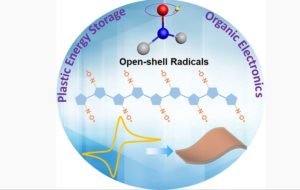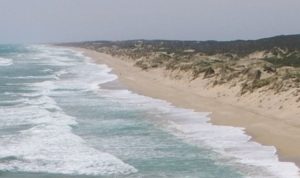
Flinders University research efforts will get a boost with more than $1 million in funding from two new Australian Research Council grants.

The College of Science and Engineering teams will respectively purchase a state-of-the-art photo-induced force microscopy and infrared spectroscopy system (PiF-IR) and a super remote autonomous vessel and lidar drone for high-res bathymetry.
The ‘Materials for Sustainability Analysis Facility’ ARC grant for Linkage Infrastructure Equipment and Facilities grant (LE230100168) was secured by Dr Zhongfan Jia, Dr Xiaoguang Duan, Professor Michelle Coote, Professor Justin Chalker, Dr Melanie MacGregor, Dr Cameron Shearer and Dr Christopher Gibson.
This $620,000 project will commission two instruments for characterising materials used in sustainable technologies: the PiF-IR system as well as benchtop electron paramagnetic resonance (EPR) spectrometer. They will be used to work on projects ranging from discovering improved materials for solar cells, rechargeable batteries, sorbents for pollution control and recyclable materials.
Neither of these critical instruments are currently available in South Australia and will have significant benefits for fundamental material science with flowon benefits to industry and the environment.

The second $387,250 ‘Coastal Bathymetry with Advanced Technologies (CoastBAT)’ grant, led by the Flinders University BEADS Lab, will be used by students and researchers including Dr Graziela Miot da Silva, Associate Professor David Bruce, Associate Professor Daniel Ierodiaconou, Jason Quinn, Professor Patrick Hesp, Professor Adrian Werner, Dr Milena Fernandes, Associate Professor Ruth Reef, Dr Ryan Baring and James Holyman to conduct high-resolution bathymetry in nearshore and inland waters.
Dr Miot da Silva says the facility will greatly assist the research efforts often limited due to high cost and difficult access by traditional surveying operations.
“This grant will also fund an USV (unmanned surface vehicle) that will also give bathymetry in places where the drone/lidar won’t work (e.g. turbid water),” she says.
“It is all about coastal research and the need to map the seafloor, especially in areas where access is difficult, impossible or expensive with more traditional boating operations.”
The up-to-date bathymetric surveying equipment will provide a low-cost solution for coastal science research, both for national and international collaborations.
This year the Australian Government has announced 45 new research grants under the Linkage Infrastructure, Equipment and Facilities scheme. A total of $39.5 million has been awarded in this latest round.

